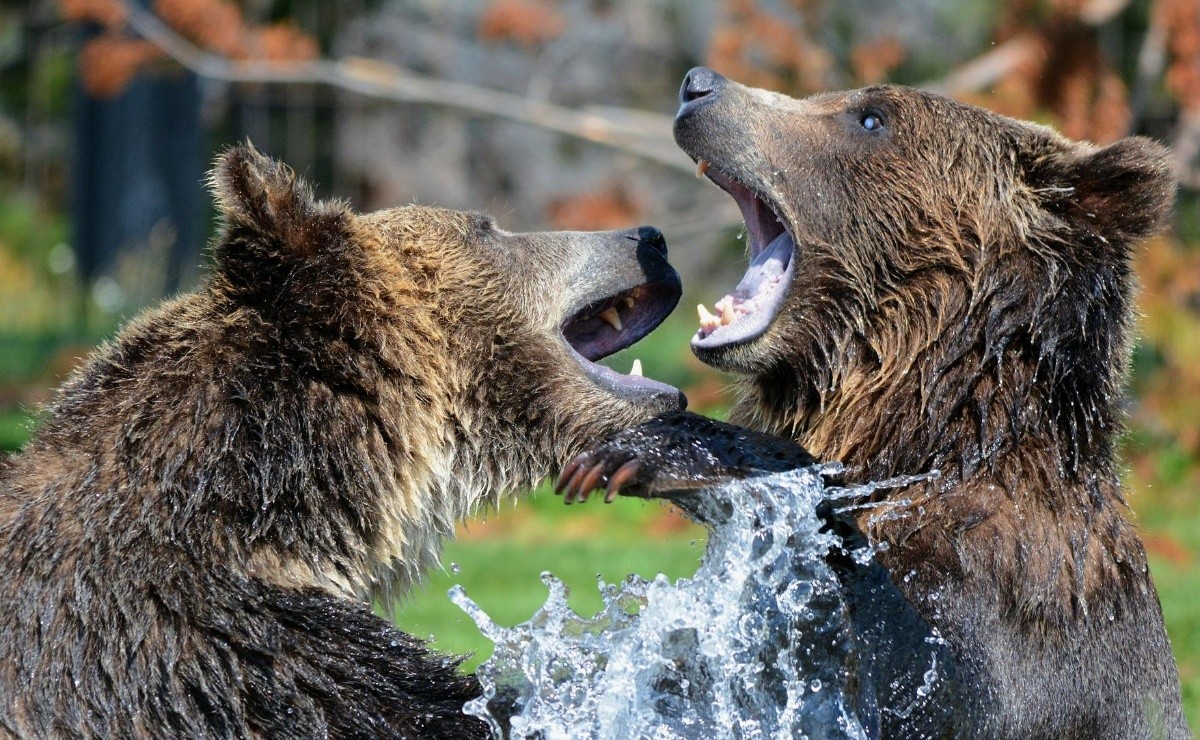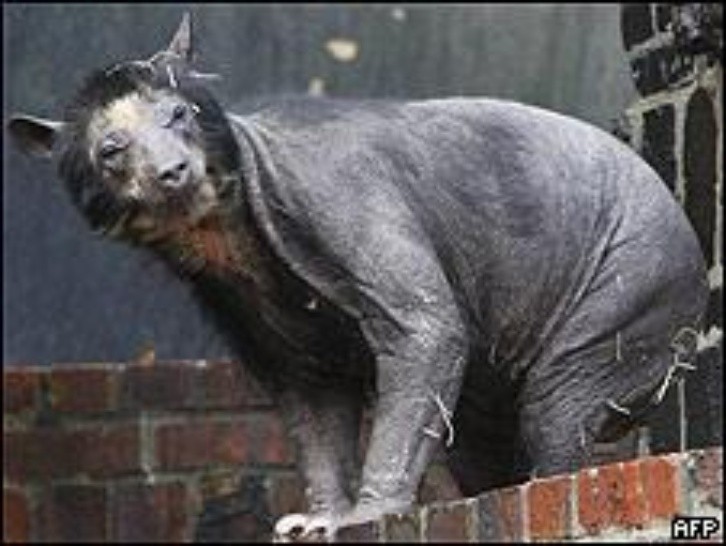
These bears have caught the attention of scientists because they suffer from a rare disease, they look shocking
There are a great variety of bears, some look cute, others fierce, but there are some bears that have no hair , are bald and make them look somewhat creepy, but they have an explanation.
Scientists have been doing various studies to determine what disease is attacking these three Andean bears from the zoo in the German city of Leipzig, they look strange because they are bald and their skin looks exposed.
Strangely, these bears have been left without hair, for some visitors it is not pleasant to see them like this, not because it scares them, but because of so much impact, they usually feel sorry for these bears that have impressed because of their rare disease.
It may interest you: Gay Penguins steal an egg to be parents, beautiful VIDEO

According to statements by Gerd Noetzhold, one of those responsible for the zoo, he mentioned that he discovered that bears in other zoos in Europe and other parts of the world have also lost their fur, and that scientists still do not have the diagnosis.
However, there is the possibility that their hair is falling out because they do not belong to that habitat, they are bears that live in the Andes mountain range, in South America.
These bears that have gone viral because of how they look have names called Dolores, Bianca and Lolita, the poor bears are suffering from irritations, as they do not have their hair to protect them, their skin is damaged, that is why the zoo keepers they put ointments
The expert mentioned that these cases are not unique to Leipzig, Gerd Noetzhold mentioned that also other zoos have the same problems with animals.
They rescue a "strange" hairless animal and discover that it is actually a bear -https: //t.co/3JKkzdhn8Z pic.twitter.com/1rSAvRnQy1
– MT in the networks (@mtenlasredes) January 11, 2018
"There are other zoos in Europe that have the same problem. That is why we had a working meeting with veterinarians from various parts of the world who had already observed this problem before."
To his astonishment, the director of the International Bear Foundation Gerard Baars mentioned that he had never seen a case like this "I can hardly believe that it is a bear, even though I have been dealing with these animals all my life," he said. Baars to the BBC.
The bears began to lose their hair two years ago. "I have suggested that food and climate may be factors to consider, as they are tropical animals that have been moved to other climates," Baars said.